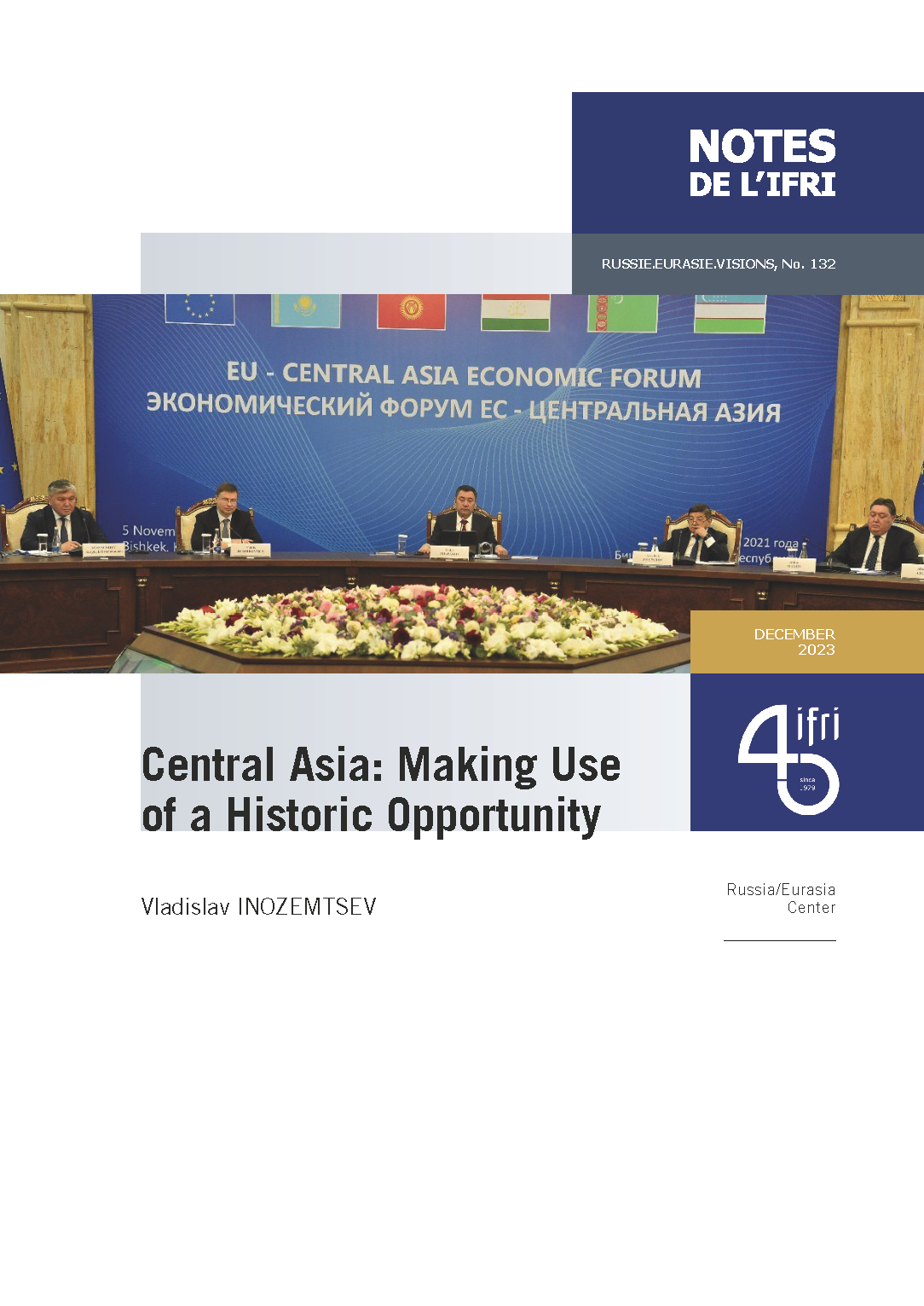Central Asia: Making Use of a Historic Opportunity

This report analyzes the economic and geopolitical situation in Central Asia.
It explores the history of Western economic and political involvement in the region in the wake of the dissolution of the Soviet Union, and assesses Russian and Chinese current aspirations concerning the Central Asian states, as well as steps these two powers have taken to assert their influence. Concrete measures are proposed that could be taken to strengthen the Western presence in this crucial region, highlighting Central Asia’s potential to complement and at least partially replace Russia as the source of energy resources and commodities that Europe lacks due to the disrupted supply chains caused by the Kremlin’s war in Ukraine.
This report not only focuses on the commodity crunch incentivizing much of the contemporary engagement with Central Asia. It also outlines opportunities stemming from the introduction of sanctions against Russian businesses, emerging new transportation corridors and links in Eurasia that can complement or compete with China-led projects, the efforts of local governments to combat terrorism and extremism, and local economic and social reforms aimed at boosting human capital.
Addressing Central Asia is extremely timely since the region is undergoing a geopolitical and geoeconomic transformation at the same time as its powerful neighbors, Russia and China, are in relatively weak positions. While Russia is preoccupied with its war with Ukraine and China with its economic malaise, compounded by the relative failures of the first iteration of the Belt and Road Initiative, this is the time to comprehensively engage with Central Asia.
Vladislav Inozemtsev is a Russian economist with a PhD in economics. He is the Director of the Center for Post-Industrial Studies, which he founded in 1996.

Available in:
Regions and themes
ISBN / ISSN
Share
Download the full analysis
This page contains only a summary of our work. If you would like to have access to all the information from our research on the subject, you can download the full version in PDF format.
Central Asia: Making Use of a Historic Opportunity
Related centers and programs
Discover our other research centers and programsFind out more
Discover all our analysesDeathonomics: The Social, Political, and Economic Costs of War in Russia
The report attempts to outline and examine a truly new phenomenon in Russian society, dubbed “deathonomics”—the making of a mercenary army against the backdrop of the Kremlin’s war in Ukraine, eventually replacing both the Soviet (conscript) and early new Russian (contract) armies. It notes that, by the end of 2023, this trend had turned the military service into one of the highest-paying professions in the country, something not seen in Russia on such a scale since the late 17th century.
Russia's Asia Strategy: Bolstering the Eagle's Eastern Wing
Among Russia’s strategic priorities, Asia traditionally played a secondary role compared to the West. In the mid-1990s, then Foreign Minister Yevgeny Primakov initiated a rapprochement with China and India. Then, in 2014, deteriorating relations between Russia and the West prompted Moscow to begin its “great pivot to the East”.
Kazakhstan After the Double Shock of 2022: Political, Economic and Military Consequences
The year 2022 represented a dual shock for Kazakhstan. In January, the country faced its most severe political crisis since independence, followed in February by Russia’s full-scale invasion of Ukraine, which cast uncertainty over the borders of post-Soviet states. These consecutive crises profoundly shaped Kazakhstan’s domestic and foreign policy.

How the Russian Army Changed its Concept of War, 1993-2022
The traditional and high-intensity war that has occurred in Ukraine since Russia decided to invade raises a key issue: did post-soviet Russian strategic thought really prepare Russia for waging this war?









